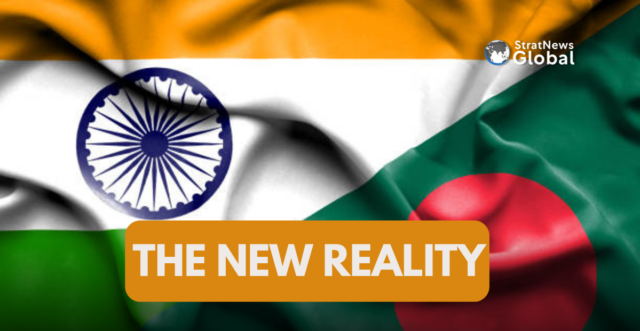“We would like to be optimistic that we can establish a good relationship so that the interests of both parties are protected. We will not cause harm to anyone. We do not want anyone to cause harm to us.”
Reassuring words from Touhid Hossein, foreign affairs adviser to the interim Bangladesh government. He was speaking at a roundtable in Dhaka on Saturday on India-Bangladesh relations, organized by the South Asian Institute of Policy and Governance and North South University.
But he underscored that “After August 5, relations with India have changed and this is the reality. We must build and continue our relationship with India in view of this reality.”
India, he said, must also work to meet Bangladesh’s concerns.
“The previous government (of Bangladesh) tried its best to address India’s concerns. We too had concerns but our issues remain unresolved.”
Although Hossein did not clarify what those concerns were, some are well known, among them the sharing of Teesta waters which has been deadlocked over West Bengal’s refusal to endorse a solution.
There is also a view that India’s push for connectivity projects through Bangladesh, whether to the northeastern states or Myanmar and beyond, have only benefited India.
Dhaka’s adverse balance of trade is another issue and although India has indicated willingness to buy more Bangladeshi products, manufacturing is yet to take off in any significant manner there barring perhaps textiles.
Reports about the arrest of another ISKCON priest Shyam Das Prabhu, minus any legal formalities, is expected to add another layer of mistrust to the overall bilateral relationship.
Prabhu had gone to meet Chinmoy Krishna Das in Chattogram. Das is accused of sedition (waving a saffron flag over the Bangladesh national flag) and his detention has seen protests by the Hindu community.
Three Hindu temples in Chattogram were also attacked and vandalized, which police have confirmed.
The negative media coverage in India about developments in Bangladesh have become a matter of anger and outrage. In a Facebook post, Law Affairs Adviser Asif Nazrul accused India’s media of running an “industrial scale misinformation campaign.”
The majority of Bangladeshis, he said citing a survey, believe the interim government has been able to provide minorities better protection than the previous Awami League government.
Anti-India politicians have stepped in, perhaps sensing an opportunity.
Senior BNP leader Mahmud Choudhary hinted at India’s role when he said “Those who haven’t taken to the streets in 16 years are now staging demonstrations. Other driving forces are behind them and it should not be ignored.”
Clearly, the current political churn in Bangladesh has given a window to anti-India groups to drum up support for a more hardline stand vis a vis their neighbour. It remains to be seen how the interim government is able to bring sanity and calm in this storm.
















